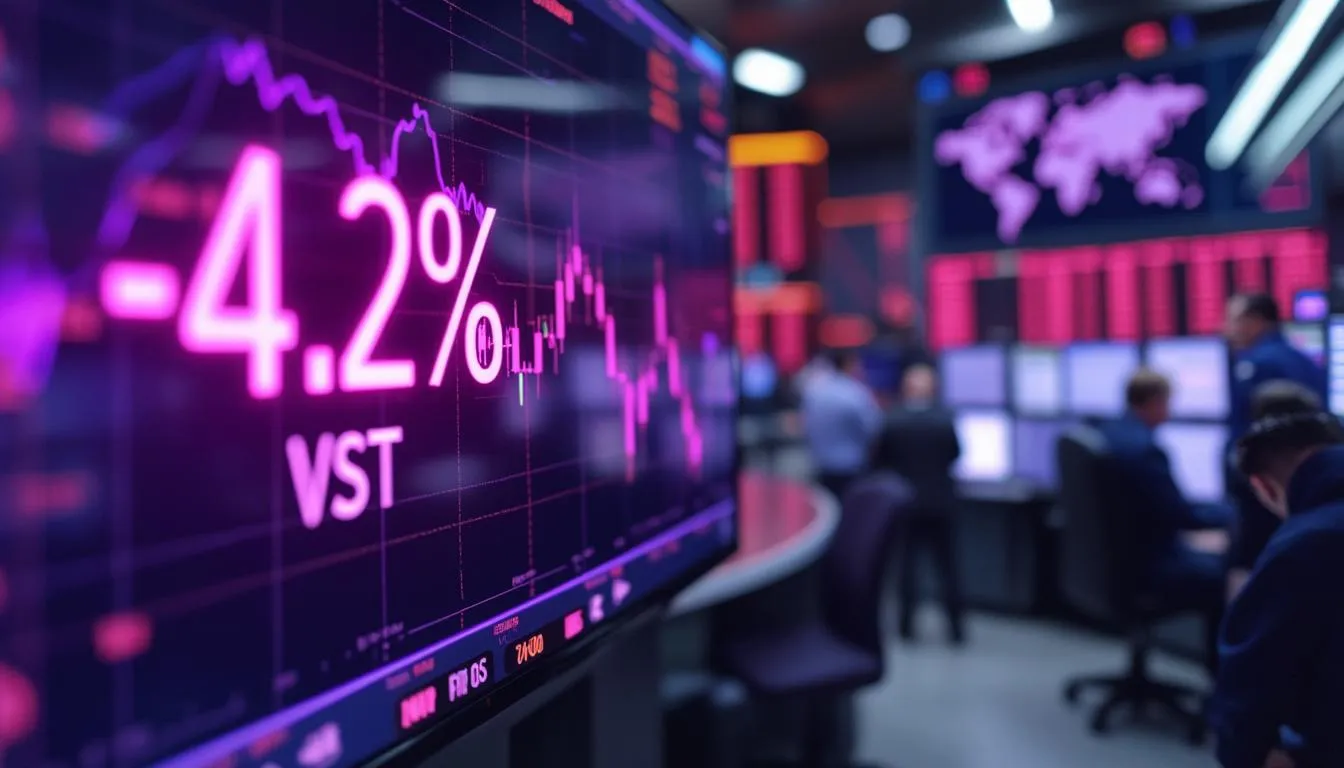A Sharp Post-Earnings Selloff and Cautious Analyst Action Spotlight Dell’s Delicate Balance Between AI-Fueled Growth and Short-Term Uncertainty
Dell Technologies (DELL)—the global leader in IT infrastructure, servers, and personal computing—faces fresh investor scrutiny after Fox Advisors downgraded the stock from "Overweight" to "Equal Weight". This shift comes directly on the heels of disappointing near-term guidance and a notable market sell-off, despite Dell’s ongoing push into AI-powered server solutions. For sophisticated investors, analyst ratings not only reflect current sentiment but can also catalyze or reinforce market moves—especially when timed with pivotal company news.
Key Takeaways
Fox Advisors downgrades Dell to Equal Weight, citing a less favorable near-term risk/reward profile.
Dell shares plunged 9.5% after earnings, as mixed guidance overshadowed long-term AI server optimism.
No updated price target offered, signaling analyst caution and industry uncertainty.
Recent news highlights strong AI demand, but immediate concerns around margin and revenue guidance weigh on sentiment.
Technical indicators show Dell is deeply oversold (RSI ~26), potentially primed for volatility and tactical trading.
Fox Advisors Steps Back: Analyst Perspective and Influence
Fox Advisors, known for its pragmatic coverage of technology hardware and infrastructure, is not a "household name" on Wall Street, but their sector-specific expertise often garners attention in institutional circles. Their downgrade of Dell from "Overweight" to "Equal Weight" signals a neutral stance, which is notable given Dell’s recent volatility and the sector’s sensitivity to guidance and macroeconomic pressures. Without a new price target, Fox Advisors’ move suggests a wait-and-see approach—reflecting broader uncertainty about Dell’s ability to convert AI momentum into near-term earnings stability.
Analyst confidence: Sector-focused, pragmatic, and views risk/reward as balanced after earnings miss.
Stock and Financial Performance: A Tale of Two Narratives
Recent Selloff: Pricing in Uncertainty
Dell’s stock price tumbled from $134.05 to $121.22 (-9.5%) immediately following the latest earnings report.
This sharp decline came after Dell raised its full-year guidance, yet issued a softer-than-expected forecast for the current quarter—prompting investors to re-evaluate near-term growth prospects.
Trading volume spiked to over 7 million shares, well above the average, indicating institutional repositioning.
Technical Backdrop
RSI at 26 (deeply oversold territory), well below typical support bands (20-day SMA: $133.34), suggesting a possible technical bounce but also heightened risk.
Recent trend: Dell has experienced 128 up days and 121 down days over the past year, with a sentiment ratio just above 50%, reflecting recent indecision.
Volatility: Average daily volatility at nearly 4%, with Dell recently touching a one-year high of $147.66 and a low of $66.25, highlighting immense trading ranges for tactical investors.
Financials and Business Model
Dell’s core business—spanning data center infrastructure, end-user computing, and software solutions—has increasingly focused on AI-powered servers as its next growth engine. While revenue from traditional PCs remains cyclical, Dell’s pivot to AI infrastructure is intended to offset softness elsewhere. However, recent earnings indicated:
Modest revenue growth, with AI-related orders ramping faster than legacy segments.
Margins under pressure from competitive pricing and increased R&D spend.
Guidance for the current quarter fell short of consensus, sparking concern about execution risk amid macro headwinds.
Recent News: AI Optimism vs. Guidance Disappointment
Invezz (Aug 29): “Dell Technologies' shares slipped nearly 9% in trading on Friday, after the company raised its full-year guidance but issued a softer-than-expected forecast for the current quarter. Investors focused on the weaker near-term outlook even as Dell highlighted strong demand for artificial intelligence (AI) servers, which has become the company's standout growth driver.” Read more
Schwab Network (Aug 29): “Tech Tumbles Ahead of Holiday Weekend: MRVL & DELL Earnings Disappoint.” Watch
Benzinga (Aug 29): “Marvell Technology, Dell And Other Big Stocks Moving Lower In Friday's Pre-Market Session.” Read more
“Investors focused on the weaker near-term outlook even as Dell highlighted strong demand for artificial intelligence (AI) servers, which has become the company's standout growth driver.”
— Invezz, August 29, 2025
What Does the Downgrade Mean for Investors?
Sector Momentum Meets Short-Term Skepticism
Dell’s long-term narrative remains intact: as enterprises modernize data centers for AI workloads, Dell’s infrastructure offerings are likely to remain in high demand. However, Fox Advisors’ downgrade reflects a more nuanced, risk-aware stance for the next several quarters. Without a new price target, the message is clear: execution and margin stabilization must be proven before a bullish bias is warranted.
Tactical Considerations
Oversold signals may attract short-term traders, but long-term investors should watch for signs of margin improvement and order book growth in AI-related segments before leaning in.
Institutional flows: The post-earnings volume spike suggests some large holders are de-risking or rotating exposure, at least temporarily.
No clear upside catalyst until next earnings or improved guidance.
Final Thoughts: A Stock at a Crossroads
Fox Advisors’ downgrade underscores the high bar Dell must clear to justify its recent valuation and the market’s AI infrastructure enthusiasm. The near-term risk/reward has shifted to neutral, with investors likely to demand clearer evidence of margin recovery and consistent AI revenue conversion before re-engaging in size.
For those tracking sector rotation, Dell’s oversold status and technical setup may offer tactical trading opportunities. But with no new price target and rising execution risk, disciplined investors should stay nimble—and watch closely for the next inflection point in both guidance and market sentiment.

.svg)
.svg)
.svg)
.svg)

.svg)

.svg)
















